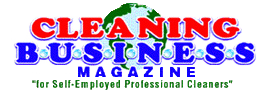Bid and Estimating, – Jan 2016
Welcome to the New Year, may 2016 be better for you than 2015.
This month I am going to address several questions from readers:
Q: A client wants me to submit a bid for a new project that they have coming up in early 2016. However, they still have invoices from 2015 that remain unpaid. How should I handle this situation?
Sally in San Diego
Ans: As an opportunity. When a customer wants something, it’s a perfect time to ask for something in exchange. In your case, I’d submit a bid for the new project, with the stipulation (verbal and in writing) that the price is conditional on their being current on all outstanding invoices and that the invoice for the new project be paid on time or in advance. Add wording to the bid to put in place a 10% discount if the invoice is paid on time or in advance, and a 25% penalty if paid late and hold their feet to the fire for payment on time or revise the invoice to include the agreed upon late payment penalty.
The best way to keep invoices from going unpaid is to be on the phone to the customer the day the invoice is due, asking when you can pick up the check and then show up in their office to pick up the check. As a business owner, its part of your job to make sure that your customers know that the only way you can give good service at a reasonable price is if you are paid on time for every invoice. If you make the calls and show up in the customer office a few times if they are late, they usually get the message and pay you on time.
You don’t want to let customers get behind on invoices; you are a cleaning service, not a bank. The reality is that when you fail to collect on invoices when they are due, customers are getting free money at your expense and there is no free money. If you are financing invoices, you are discounting your work by at least 10% and as much as 30%, if you are using your credit cards to pay the bills you need to pay, instead of collecting for the work you have done from a customer. You are better off focusing on collecting your outstanding invoices when due, it is often less expensive to encourage and reward prompt payment by giving a customer a discount for prompt payment, instead of borrowing money to loan to them so they can pay some else, instead of you.
Q: I have a small cleaning business and are wondering what type of accounts, projects or facilities you think I should avoid as not being worth bidding on. What are some of the red flags that I should watch out for when bidding that will help me keep my business profitable and afloat in 2016 and beyond.
Rubin in Rochester
Ans: Those that don’t fit your market demographic should be avoided. Accounts that involve a lot of travel or supervision are often problematic and low profit. Accounts that want once a wk or twice month service are difficult to please as they are price only buyers. Nasty, dirty, beat up locations should be avoided. Accounts that pay late or complain a lot should get a Dear John letter or an increase to make putting up with their problems worth your time and effort.
When bidding on accounts, if the last contractor left the place in bad condition, there is probably a reason, such as low pay or no pay.
If a potential customer wants you to start tonight, I’d see that as a warning sign and ask for payment in advance.
Q: I have been running a cleaning business in Brooklyn for 2 years and need help in developing a pricing strategy and submitting proposals to prospective clients.
Bobby in Brooklyn
Ans: If you have been running a business for two years and have been getting accounts and are profitable, you have a pricing strategy but just haven’t formalized or documented what you are doing. I’d suggest starting by organizing all your previous bids for easy future reference and put in writing some of the basics you need to know to implement a more organized and accurate pricing strategy. Examples of the numbers you need to know include, labor, supply, and overhead costs, profit percentage, burdened hourly rate, and billable hourly rate.
I’d also suggest purchasing the ISSA’s 612 Cleaning Times booklet and or software, in addition the BSCAI has several books available of bidding and estimating. At each year’s annual ISSA and BSCAI shows, there are many seminars and workshops that would help you come up with a realistic pricing strategy and information on improving how to go about submitting proposals.
The BSCAI as part of its convention each year, offers a class on bidding and estimating, as do several other private consultants, publishers and industry experts. Do some research on Google and you’ll find plenty of resources and information available to assist you.
Keep those questions coming and we will try to answer a few more next month.
Best of luck and keep it clean out there.
















